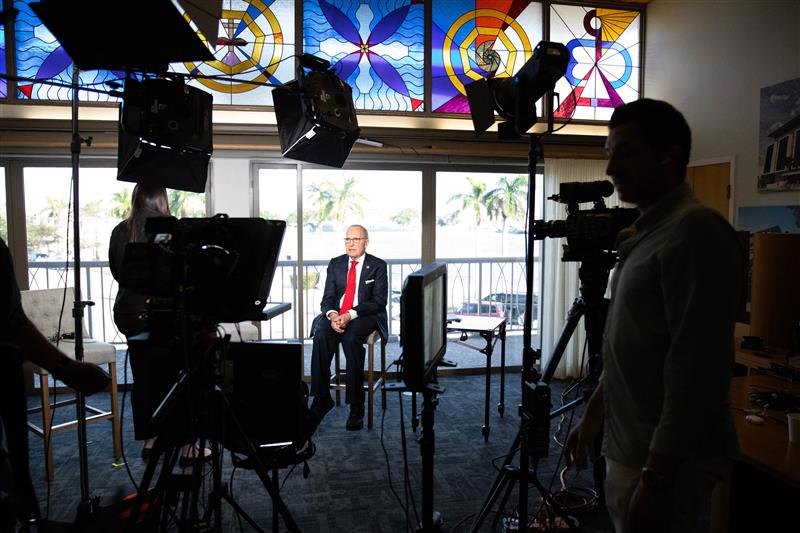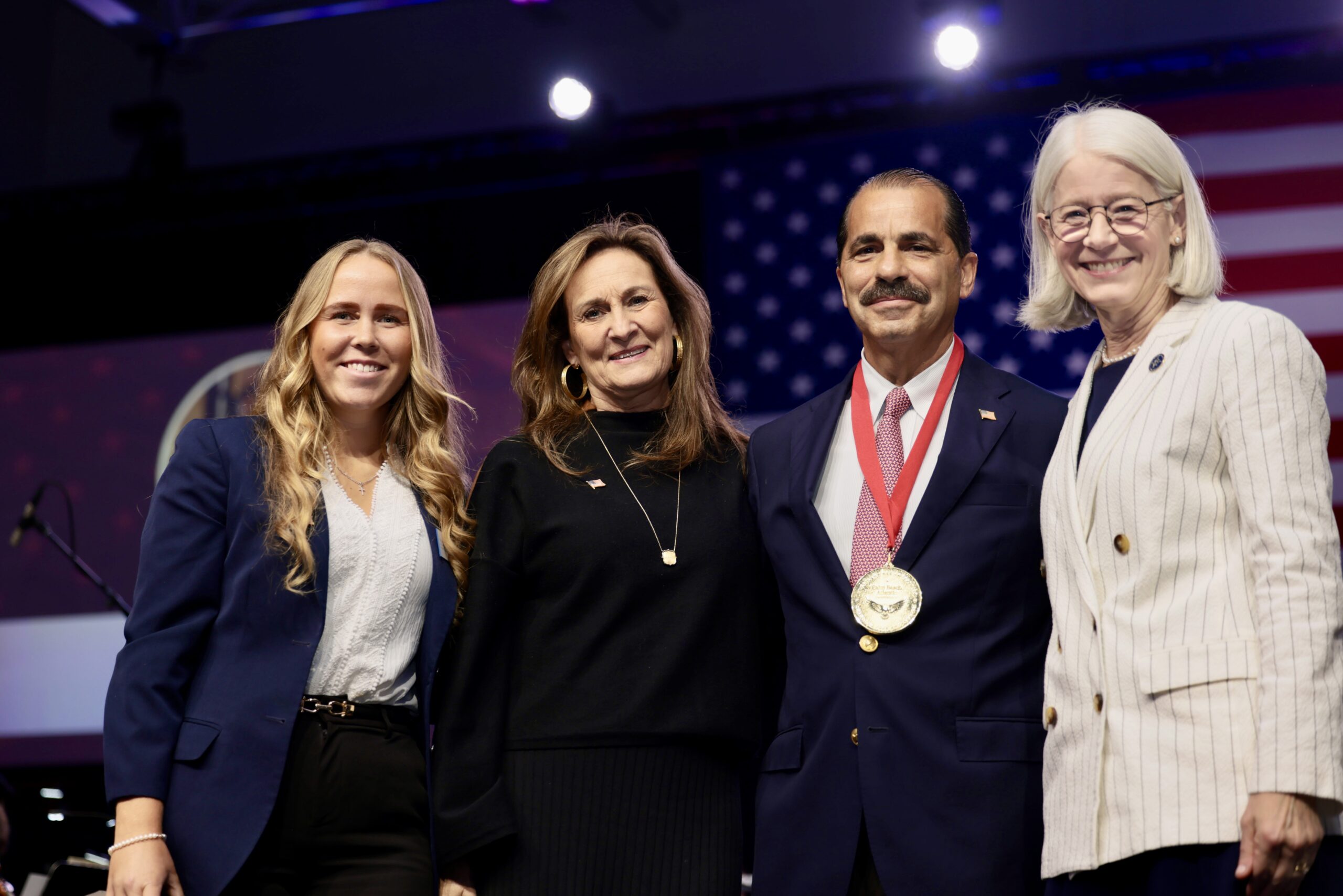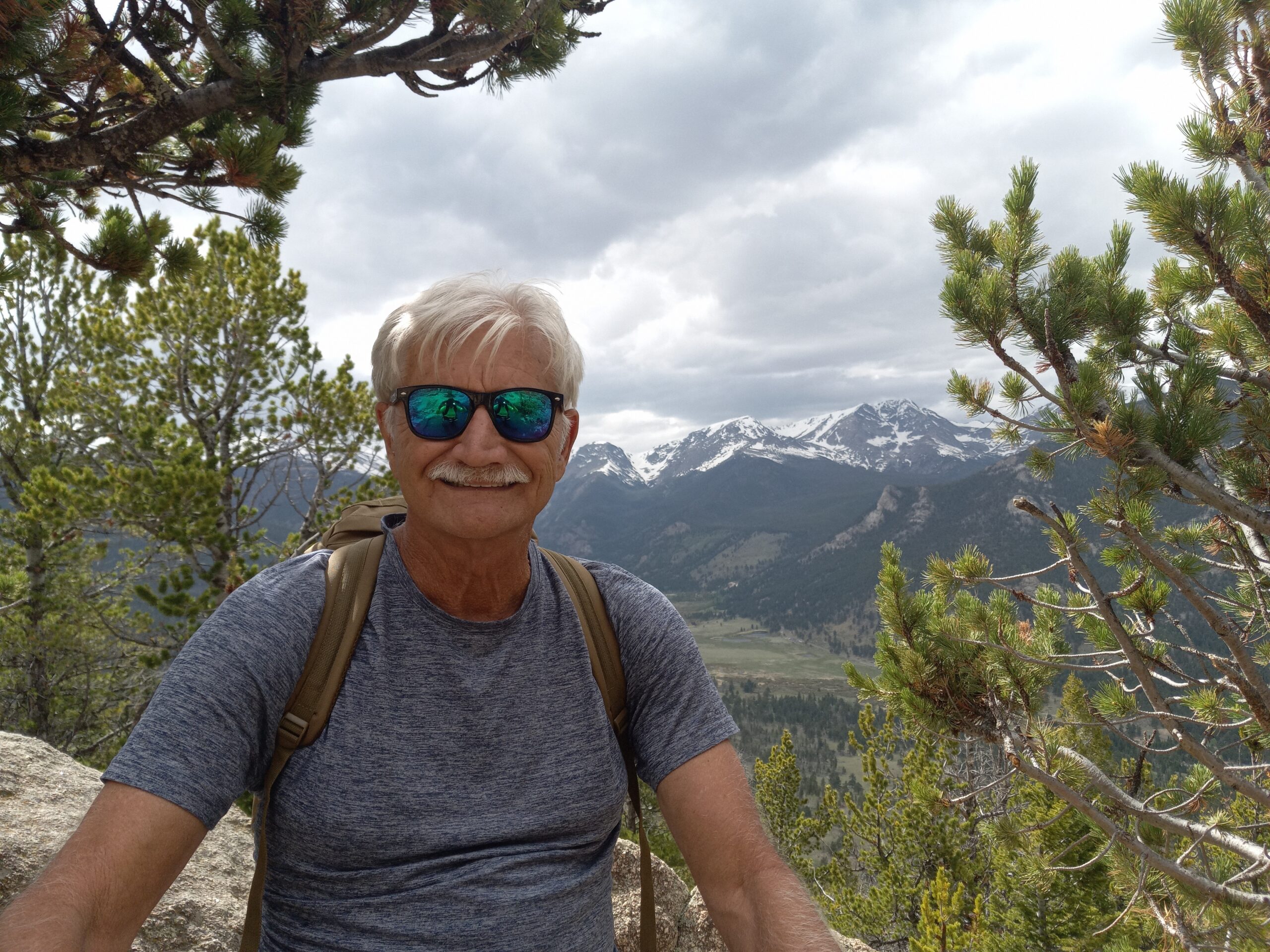No one has ever been insulted into agreeing.
Wise words from Monday’s LeMieux Center for Public Policy guest speaker Dr. Arthur Brooks, who spoke to students and community guests in the DeSantis Family Chapel about the political divide in United States today. Brooks is the professor of the Practice of Public Leadership at the Harvard Kennedy School.
In his introduction, former U.S. Senator George LeMieux characterized Brooks’ latest book, “Love Your Enemies,” as the “most important book in America right now.” PBA President William M. B. Fleming, Jr., noted in his welcome that Brooks’ book reminded him of the University’s core values of accountability, excellence, integrity, respect, love and unity.
Brooks, who served for 10 years as president of the American Enterprise Institute (AEI), one of the world’s leading think tanks, said that the polarization in American politics is the “biggest problem facing our country.” The bestselling author, social scientist, and Washington Post columnist offered the audience solutions in order to “empower you to be a change maker.”
In the audience were members of the LeMieux Center for Public Policy Advisory Board and Palm Beach Atlantic students who are former American Enterprise Institute interns: Megan Alsene, Maddie Gregory, Sarah Kilpatrick, Amber Ledbury and Andrew Mercantini. A French horn quartet, comprised of PBA students Alyssa Cloud, Jessica Dennis, Christopher Loomis and Joshua Stancil performed several Christmas selections in honor of the Brooks, himself a French horn player who worked professionally as a musician earlier in his career.
Brooks briefly shared how he came to formulate his solution to the divide in America, reminding the audience he grew up in Seattle, raised by parents who shared the liberal values of that part of the county. He noted that his parents raised him to “think for himself,” perhaps not realizing that their son would develop a more conservative perspective.
Today, the hostile groups “view each other exactly the same” as stupid or evil.
“My parents were not stupid or evil,” Brooks said. “I remembered that they were talking about my mom.”
That realization inspired him to work to bring people together by having the courage to speak up for those on the margins noting that “it’s harder to stand up to the people with whom you agree.”
Showing contempt for those who hold different viewpoints has become a habit, Brooks said. He encouraged the audience to break that habit, by stopping at the point of becoming angry and responding with gratitude and warm feelings.
“Each one of us has the power to break the cycle,” Brooks advised.
His tips for fostering more civil discourse on political matters include tuning out those who profit from pitting citizens against one another; he called on members of the audience to defuse contempt wherever they encounter it; and he encouraged everyone to express more gratitude in those tense situations.
“Gratitude is the fast track for changing yourself and others,” he concluded.


